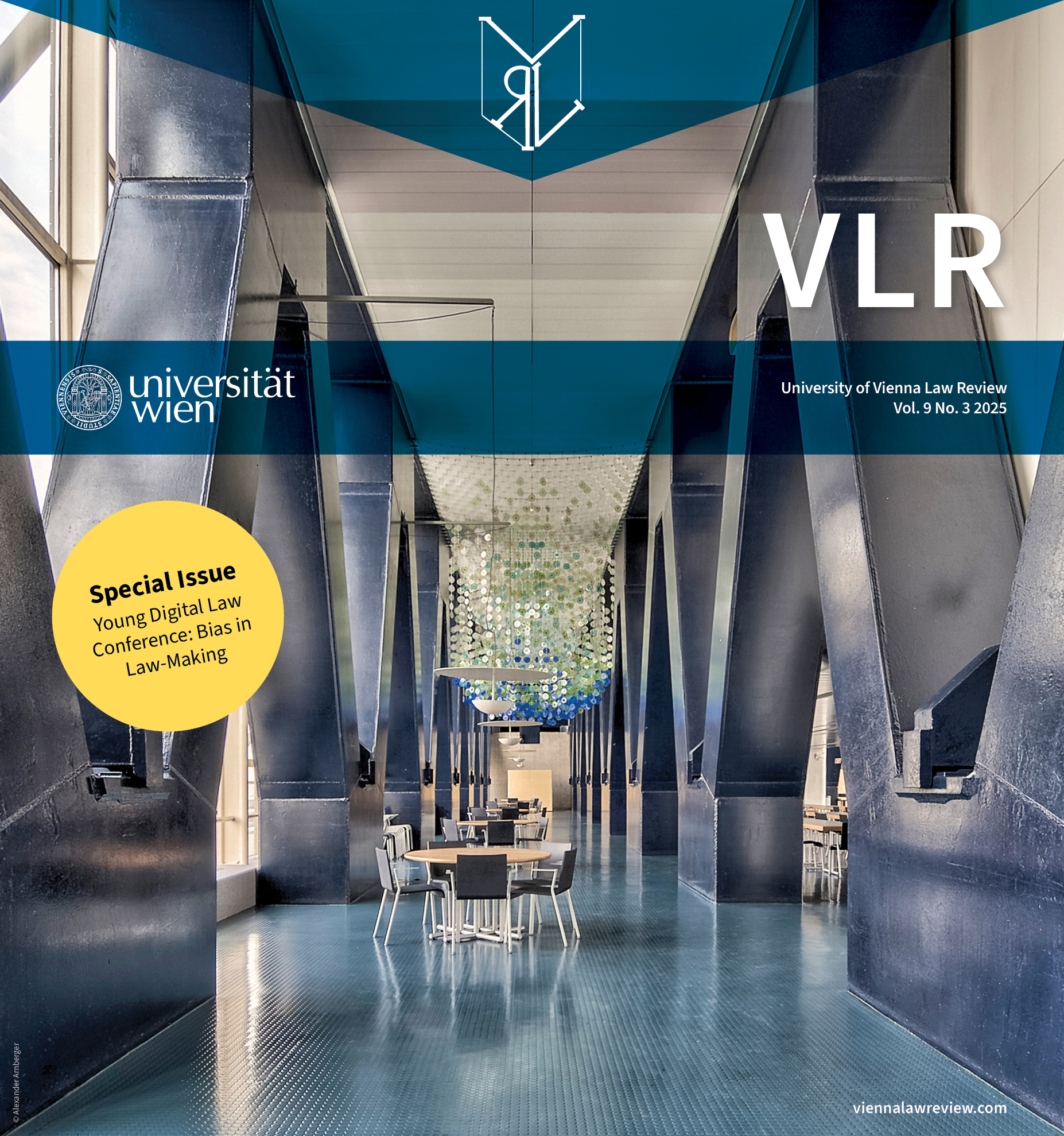Legislative Bias and RIA
Case Study of Article 17 CDSM in Czech Republic, Public Choice Theory and Cognitive Biases
DOI:
https://doi.org/10.25365/vlr-2025-9-3-169Keywords:
behavioral law and economics, DSM Directive, regulatory capture, RIAAbstract
Regulatory impact assessment (RIA) is a regular part of modern lawmakers' toolkit aiming to improve legislation and promote efficient decision-making by supporting the creation of evidence-based policies. RIA is a systemic evidence-based approach that employs empirical methodology to assess the proposed legislation and its alternatives. In its very essence, it requires legislators to perform and document a cost-benefit analysis. Research explores RIA processes and the challenges characteristic to RIA in a case study of the transposition of Article 17 CDSM Directive in the Czech Republic. Article 17 CDSM is a substantive legislation that shapes online copyright and the use of user-generated content. The article identifies the forces and biases that negatively impact RIA using the tools of law & economics. First, the research employs public choice theory to analyze the problem of regulatory capture. Second, the article offers insight from behavioral economics on the influence of cognitive biases on the RIA. These findings inform and enrich practical legislative processes and promote good law-making. To this end, the article proposes strategies that mitigate RIA's risks and challenges. As such, the findings translate outside the Czech Republic, where the case study was performed.
Downloads
Published
Issue
Section
License
Copyright (c) 2025 Ondřej Woznica, Michal Vosinek

This work is licensed under a Creative Commons Attribution-NonCommercial-NoDerivatives 4.0 International License.
All articles are licensed under the Creative Commons License CC BY-NC-ND. A summary of the license terms can be found on the following page:
https://creativecommons.org/licenses/by-nc-nd/4.0/
Authors retain copyright without restrictions.


